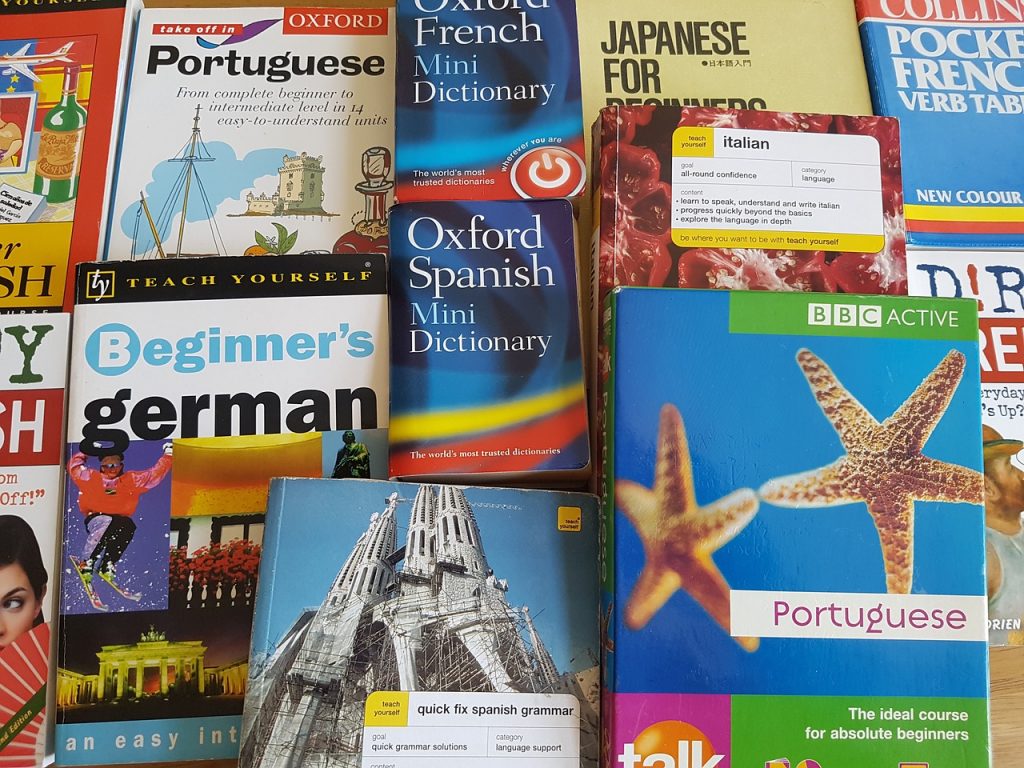Why Are (Most) Russians Bad At Speaking Other Languages Posted by Maria on Jan 9, 2019 in Culture, language
Several people who visited Russia told me they were surprised to discover that relatively few people spoke or understood English, even in the service industry in large cities. Generally speaking, the educational system and the environment in Russia contribute to this state of affairs.
Largely Monolingual
In a 2014 survey by the Levada Center pollster, 70 percent of Russians said they did not speak any languages other than Russian. The question was:
Говори́те ли Вы бо́лее-ме́нее свобо́дно на каки́х-ли́бо иностра́нных языка́х, и е́сли да, то каки́х?
Do you speak any foreign languages more or less fluently, and if so, which ones?
The top languages that the respondents named were:
- англи́йский (English)—11%
- неме́цкий (German) and испа́нский (Spanish)—2% each
- украи́нский (Ukrainian)—1%
- францу́зский (French) and кита́йский (Chinese)—less than 1% each
People in the 18–24 age group, college graduates, and residents of large cities were more likely to speak another language.
Inadequate Teaching
According to a different poll, 70 percent of Russians took English in school, 31 percent German, and 8 percent French. However, only 43 percent said the teaching quality was good (хорошо́) or excellent (отли́чно), and 39 percent said it was fair (удовлетвори́тельно).
Anecdotally speaking, it seems that in many Russian schools a foreign language is taught as something you pass an exam in and forget. Many schools still use the grammar-translation method with a lot of rote memorization and few authentic materials or native-speaker (носи́тели языка́) teachers.
Little Exposure
To make matters worse, most Russians don’t really get exposure to other languages or a chance to practice. Films in other languages are usually dubbed on TV and in cinemas. In April 2018, 68 percent of Russians said they had never been abroad (за грани́цей). For Moscow, that number is lower at 36 percent. Most respondents Russia-wide (89 percent) said they had not been abroad in the last 12 months—for Moscow, that number is 74 percent.
Another reason may be that there is no real pressure to know another language well. In a recent study of what skills (на́выки) are desirable in employees, speaking another language did not even make the list. It is seen as a bonus that may lead to new opportunities but not as a requirement for getting a job or travelling. In this sense, attitudes to learning languages in Russia are somewhat comparable to those in the US. However, there is a glimmer of hope: most Russians agree that learning another language is important.

Build vocabulary, practice pronunciation, and more with Transparent Language Online. Available anytime, anywhere, on any device.







Comments:
samonen:
It is perhaps in place to point out a couple of historical facts that may (or may not) have contributed to the present situation:
(1) in the post-Petrine, or Russian Empire, era, the upper-class of Russia used to be more than well-versed in foreign languages, mostly in French, even to the point of Russian being supplanted, as the nobility were home-schooled by foreigners;
(2) the Bolshevik coup and its (long) red aftermath – boy, did the tables turn with the upper and educated classes fleeing, dying or losing their status, and, later, the Russian language being inculcated as being the new lingua franca in the “world system” of socialism or, in Marxist-Leninist historical determinism, the language of the future.
Today, in the business and ICT communities, being able to work in English is taken as a matter of course. On the other hand, your typical Russian feels he or she can go a long way far and wide with Russian the country being rather ample…
Maria:
@samonen This is an excellent point—thank you for the historical perspective. Indeed, if you read 19th century Russian literature, entire paragraphs are in French. More recent times, as you pointed out, are a different story. I’m sure the Iron Curtain didn’t help, either.
Пётор:
@Maria Yep this is correct, my grandmother spoke French when she was a young lady. Then escaped with my grandfather and their 2 children over the Chinese border when the reds uprised